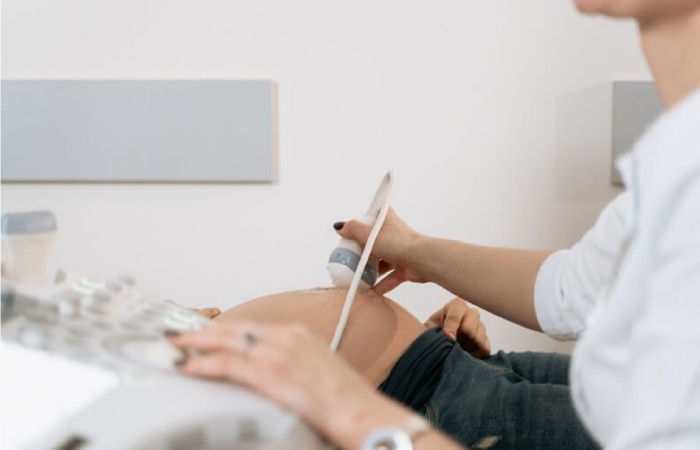Infertility has emerged as a developing concern among many ladies across the globe, which harms their physical and emotional health. Awareness associated with infertility remedies for female patients is growing in India. Therefore, they may be more privy to coming near fertility doctors for an answer.
The causes of female infertility are great-ranging and involve ovulatory issues, blocked fallopian tubes, uterine abnormalities, and age-related issues. Added to this, hormonal imbalance, PCOS, lifestyle factors, and genetic problems might also cause it to an incredible volume. Early identification of signs and symptoms and expertise of such common causes can help right away diagnose and treat infertility among women.
For those seeking expert care, choosing the best IVF center is crucial, as it provides access to specialized treatments and experienced professionals. exemplifies this, with a dedicated team guiding women through each step of the process.
Methods of identifying female infertility

Female infertility is based on several studies and studies aimed at identifying causes. The process begins with a comprehensive medical history review and physical exam to recognize signs and symptoms of infertility in women, including irregular menstrual cycles, abnormal bleeding, painful sleep, or hormonal imbalances to monitor FSH, LH, thyroid hormone, prolactin levels, etc. Blood tests are almost always done. This helps identify hormonal conditions that may affect the outcome of ovulation.
Let us pretend to explore with cervical ultrasound assistance for a moment. A simple cervical ultrasound examination is performed to assess uterine, vagina, and vaginal mucosa abnormalities. For instance, ultrasound may be used to diagnose gynecological disorders, including spine and ovary deformities, cysts, fibroids, or intra-uterine growths known as polyps. Hysterosalpingography is an X-ray examination of the uterine cavity and the cavities of the vagina that is associated with obstruction and other anomalies at birth. It is data.
In some cases, less invasive surgery is needed to help diagnose endometriosis, scar tissue, or other pelvic organ obstruction. Other tests, such as oocyte testing and monitoring fertilization, can lead to insightful regular ovulation because each case of infertility is a unique Being, and thus recognizing the signs of female infertility symptoms will lead to a proper treatment and management strategy.
Treatment for Female Infertility

When someone gets to know about infertility, specific treatments can be done. Approaches to remedies range from changes in lifestyle to very specialized medical treatments, depending on what is most effective to improve fertility.
Lifestyle and Natural Remedies
Almost all people find the adjustment of lifestyle their first step in the management of infertility in females. Good reproductive health may be ensured if one maintains a healthy body weight, regular physical activity, and a healthy diet of fruits, vegetables, whole grains, and lean proteins. Others may achieve these by the intake of reduced caffeine and alcohol, quitting smoking, and managing stress with the use of relaxation techniques such as yoga or meditation.
Medical Treatments
Fertility medicine for females primarily assumes the form of fertility medication, which is prescribed to the female patient to initiate ovulation mechanisms that would have otherwise been stopped and hence create a better chance of conception.
The fundamental types of fertility medication involve Clomiphene Citrate administration, Letrozole, and Gonadotropins. Clomiphene Citrate is most typically prescribed for females who either hardly ovulate or do not at all. This medication initiates the ovaries to let out an egg, therefore triggering ovulation.
Advanced Assisted Reproductive Techniques

If the women fail to respond to life modifications or medication, advanced assisted conceptive technologies such as IUI or IVF can be prescribed. IUI refers to the process of administering sperm directly into the uterus near the time of ovulation to have maximum chances of fertilization. One of the most effective treatments, IVF, entails the extraction of eggs from ovaries, fertilization by sperm in a lab, and finally, transferring the embryo into the uterus.
Selecting the Right Infertility Specialist
The choice of a fertility specialist is one of the major concerns for any female patient in the course of infertility management. It means finding a specialist with extensive experience in the problems of women’s infertility and, at the same time, significant achievements in cases similar to yours. If you are utilizing the family planning benefits from your employer, your choice may also be affected by the options available.
Further research and consultation with several specialists will give you insight into their approach, expertise, and the available treatment modalities before deciding. Look for specialists associated with reputed fertility clinics or hospitals capable of offering a wide array of diagnostic and treatment options, including modern procedures in ART. While the advanced remedy is being opted for, consisting of in vitro fertilization, the exceptional IVF middle on the town ought to be searched for. Ideally, it shall include a team of qualified reproductive endocrinologists with the revel in properly-skilled embryologists and aid group of workers in handling complex infertility cases.
Conclusion:
Many factors can cause infertility treatment for females. However, various forms of therapy may help women overcome the problem. Spectrum of Treatment Options: Patients can choose from modified lifestyles, natural remedies, medical treatment, or assisted reproductive technologies.
Indeed, the most important factors would be accurate diagnosis, personalized treatment, and appropriate selection of the infertility specialist or clinic, such as the best IVF center, to ensure successful outcomes.